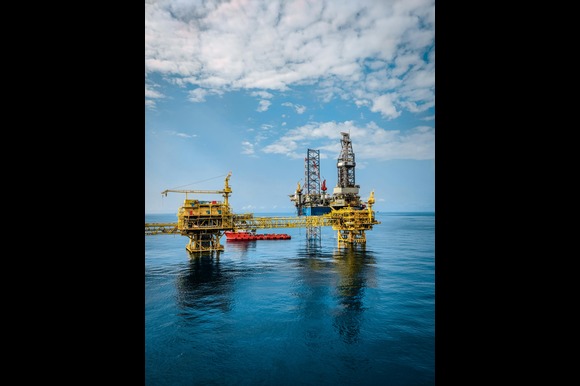The developers behind the UK’s largest undeveloped oil field, Rosebank, have revealed the full scale of its potential environmental impact, exposing how significantly the project could contribute to global warming if it receives government approval.
According to new data provided by Equinor—the Norwegian energy company leading the project—burning the oil and gas extracted from Rosebank could release nearly 250 million tonnes of planet-warming carbon dioxide over the project’s lifetime. The figure highlights the immense climate implications of the development, which lies about 80 miles northwest of Shetland.
Emissions Comparison and Developer’s Defense
While the exact yearly emissions would vary, the projected total emissions from the use of Rosebank’s oil and gas products are equivalent to two-thirds of the UK’s total annual carbon emissions in 2024, which stood at 371 million tonnes.
Despite the staggering numbers, the field’s developer has insisted that the emissions are “not significant” when compared to the UK’s international climate targets and obligations.
However, environmental campaigners and climate experts have strongly rejected that claim. They say the company’s acknowledgment of such figures amounts to an “admission of vast climate damage” that would result from the project’s approval.
Background: One of the Largest Fossil Fuel Discoveries in UK Waters
The Rosebank field, jointly owned by Equinor and Ithaca Energy, is considered one of the most significant undeveloped fossil fuel discoveries in British waters. The field is estimated to contain up to 300 million barrels of oil along with substantial gas reserves.
Initially approved in 2023, the project faced legal setbacks after a UK court ruled in July 2025 that the environmental assessment conducted for Rosebank was insufficient. The ruling required a comprehensive reassessment that includes the impact of burning the extracted fossil fuels—something previously not mandated for such projects.
Public Consultation and Legal Context
In response to the court’s ruling, a public consultation was launched and will continue until November 20, 2025. The Energy Secretary will then make the final decision on whether to grant approval for the project.
This development comes in the wake of a landmark Supreme Court ruling in June 2024, which established that all fossil fuel projects in the UK must account not only for the emissions from extraction but also for the emissions resulting from the end use of the fuels.
The ruling stemmed from a legal challenge by a woman in Surrey over a local gas project and was later used successfully by Greenpeace and Uplift to challenge Rosebank’s initial approval.
Massive Rise in Estimated Climate Impact
As part of the reassessment, Equinor recalculated the total environmental footprint of Rosebank. The company now estimates that burning the oil and gas from the field could produce around 249 million tonnes of carbon dioxide over the next 25 years—a figure more than 50 times higher than its previous estimate of 4.5 million tonnes from just the extraction process.
This dramatic increase has reignited the debate over whether such a large-scale fossil fuel project aligns with the UK’s net-zero commitments and international climate obligations.
Environmental Groups Denounce Project’s Climate Consequences
Environmental organizations have expressed outrage over the updated figures. Paul Morozzo, Greenpeace UK’s senior climate campaigner, described them as a “brazen admission” of the extensive climate damage the project would cause.
Similarly, Tessa Khan, executive director of Uplift, called the Rosebank field a “test of the government’s credibility” on its climate promises. “This enormous oil field is not consistent with the UK’s climate commitments,” she said. “The world already has much more oil than is safe to burn.”
Government’s Position and the Path to Net Zero
The UK has pledged to reach net-zero emissions by 2050, with Energy Secretary Ed Miliband reaffirming the government’s commitment to shifting away from fossil fuels. Speaking at an industry conference this week, Miliband said the UK’s continued reliance on oil and gas was its “Achilles’ heel,” emphasizing that only clean energy could offer sustainable and affordable solutions for the future.
However, if the Rosebank project proceeds, critics argue it would undermine the UK’s climate leadership and damage its credibility in global climate negotiations.
Economic Implications: Limited Benefit for UK Consumers
Despite the project’s scale, experts say Rosebank is unlikely to lower UK gas or energy prices. The extracted oil and gas would be sold on international markets, not reserved for domestic consumption.
The UK’s independent Climate Change Committee (CCC) previously stated in 2022 that further domestic oil and gas production would have “at most, a marginal effect on prices,” casting doubt on claims that Rosebank could enhance energy security or affordability.
Still, Arne Gurtner, Equinor’s senior vice president for the UK, defended the project’s potential benefits, stating: “If the UK needs Rosebank oil, it will go to the UK through open market mechanisms.”
Conclusion: A Defining Moment for UK Climate Policy
The Rosebank oil field has become a focal point in the UK’s ongoing debate over balancing energy needs, economic interests, and climate responsibility. With nearly 250 million tonnes of potential carbon emissions now on record, the project represents a critical test of whether the government will prioritize immediate energy gains or long-term environmental commitments.
As the public consultation continues and the Energy Secretary prepares to make a final decision, the fate of Rosebank could shape not only the UK’s energy policy but also its global reputation as a climate-conscious nation.






